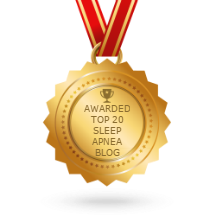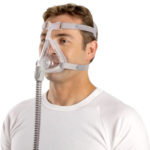
Sleep Apnea Equipment in South Jersey
Buy your Sleep Apnea Equipment in South Jersey from CPAP America. We are a reliable dealer in South Jersey for all of your CPAP and Sleep Apnea Equipment. Our sleep experts will answer your questions and take the time to explain how you can get a better night’s sleep and prevent other serious health problems. Come to CPAP America in South Jersey for:
- Home Sleep Apnea Testing
- CPAP, Bi-PAP and Auto-PAP Machines
- CPAP Masks
- CPAP Tubing
- CPAP Filters
- CPAP Accessories
- CPAP Equipment for Women
- Travel CPAP Machines
No more waiting for your CPAP Supplies to come in the mail. If you find a lower price, we’ll beat it! Trust us to supply all of your Sleep Apnea Equipment in South Jersey at CPAP America, 943 Kings Highway, Suite 503, West Deptford, NJ 08066. Call us at 856-853-0324.
Click The Links Below to Learn More:
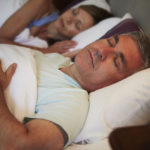
Sleep Study in South Jersey
Are you looking for a sleep study in South Jersey? CPAP America is a nationwide CPAP supply and Sleep study center located right here in South Jersey. The West Deptford, CPAP America store can set you up with a sleep study that you do at a home, right from the comfort of your own bed. A Board Certified Physician will study the sleep test results. Your sleep test results, along with any treatment recommendations will be given back to us. No prescription is required and the test results can be sent directly to your primary care physician.
Compare Our Home Sleep Study to a Sleep Center
- Sleep In Your Own Bed vs Uncomfortable Medical Facility
- No Rx Needed vs Doctor Visit Just to get an Rx
- $199 Complete Cost vs $1,200 and Up
If you are looking for a sleep study in South Jersey, look no further than the comfort of your own bedroom.
Call CPAP America: (856) 853-0324
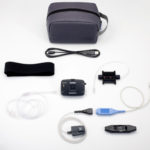
Home Sleep Apnea Test
Buy your Home Sleep Apnea Test from CPAP America. CPAP America will guide you through the process from ordering your Home Sleep Apnea Test, getting set up, and working with you to get your results quickly. You will be able to take the test in the privacy of your home. Plus, you can buy your Home Sleep Apnea Test for only $199.00! Sleep Apnea Tests in an overnight sleep lab can cost thousands of dollars.
The Home Sleep Apnea Test includes the equipment to replace the sensors and tubes attached to you during a sleep study in a sleep lab, while still providing accurate and useful results.
The Home Sleep Apnea Test by ResMed includes:
- A chest belt
- A nasal cannula
- An Oximeter
- A recording device
The Home Sleep Apnea Test is a service. You won’t have to store the testing equipment in your home. When the test has been completed, simply bring or mail it back to us — we pay the shipping! Ask how you can get a Sleep Apnea test in the privacy of your own home from CPAP America, 943 Kings Highway, Suite 503, West Deptford, NJ 08066. Call us at 856-853-0324.
For more information, click below:
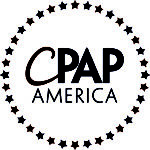
South Jersey CPAP Supplies
Buy your South Jersey CPAP supplies from CPAP America. We are the top shop in South Jersey for all of your CPAP needs. Our expert clinicians can answer your questions and show you how the best CPAP equipment can help you get a better night’s sleep — and live a healthier life. Come to CPAP America in South Jersey for:
- CPAP, Bi-PAP and Auto-PAP Machines
- CPAP Masks
- CPAP Tubing
- CPAP Filters
- CPAP Accessories
- Home Sleep Apnea Testing
- CPAP Equipment for Women
- Travel CPAP Machines
Ask how you can get a Sleep Apnea test in the privacy of your own home. Find South Jersey CPAP Supplies at CPAP America, 943 Kings Highway, Suite 503, West Deptford, NJ 08066. Call us at 856-853-0324.
Click The Links Below to Learn More:
Detecting and Treating Sleep Apnea a Top Priority for NTSB
The National Transportation Safety Board has just issued its Most Wanted List. Their list of transportation safety improvements for 2015 — to strengthen commercial trucking safety. This invloves detecting and treating sleep apnea among truckers.
How To Choose a CPAP Mask
So you have been prescribed positive airway pressure or PAP therapy. Now you will need to be fitted for a CPAP mask. This guide will show you the important things to keep in mind when you choose a CPAP Mask.
The mask is attached to tubing that connects to the PAP machine and delivers the pressurized air. It is very important that the mask is comfortable and provides a proper seal for the airflow. The correct air pressure level cannot be reached unless your mask fits correctly.
Plus, a comfortable mask that fits well will make using PAP easier. When looking for a comfortable mask, keep in mind the fit (one size does NOT fit all) and the style, which is a personal preference that only you can decide.
Choose a CPAP Mask – The Different Types of Masks
- CPAP Triangular Masks: This is the most common type of mask used. They are designed in the form of a triangle to easily fit your nose. A strap will allow you to secure the mask. You have a choice of full face — that covers your nose and mouth — or, nasal that just covers your nose.
- CPAP Oral Masks: This mask has been designed for people who sleep with their mouth open. These oral masks also come with a heated humidifier, which will keep both your mouth and regions of your throat wet. The only disadvantage of this mask is that certain people find it very uncomfortable to wear due to the nasal plugs attached to the device.
- CPAP Nasal Pillow Mask: This mask has two separate parts; both have to be inserted in to the nostril itself. While using this type of mask, place the tubes by looping it over your head. This will allow you to sleep on either side of the body without disturbing the mask.
- CPAP Hybrid Pillow Mask: This type of mask is usually a mixture of two or more masks. This type of mask is useful for people who suffer from Mixed Apnea, or who have difficulty finding a mask that fits correctly.
Remember, when you choose a CPAP mask, do your research. Talk to your doctor about your sleeping habits and other personal preferences. Choosing the right CPAP mask will ensure longer use from the mask and better results from your CPAP Machine.

Cleaning your CPAP Machine
Cleaning your CPAP Machine is essential to get the maximum benefits from your machine. It takes an hour or less, but you will definitely notice a difference when the parts of your machine are clean and fresh.
How Do I Clean My CPAP Machine?
- Before you start, unplug your CPAP machine so you won’t get shocked.
- Disconnect your mask from the CPAP tubing. If your mask has a headgear, detach it. If there are other pieces that are easily reattached, these also can be separated.
- Remove the CPAP tubing from any connectors, the humidifier, or from the CPAP machine itself, if it connects directly.
- If you have a humidifier unit, remove it from the CPAP machine, and separate it into pieces, if you can do it easily.
- Wet a soft cloth with warm water. Gently wipe down the outer surface of the CPAP machine.
- Fill a container with warm water. Add a small amount of gentle dish soap.
- Submerge the mask, headgear, tubing, and connectors in the warm soapy water. Allow it to soak for about 30 minutes.
- Then, wipe out the mask with a soft cloth and warm water, and swish soapy water through the tubing. Allow everything to air dry on a towel. These items should ideally be cleaned every day, or as often as possible.
- The humidifier should be cleaned with hot water and mild soap. It should also be allowed to air dry. Remember to only put distilled water in the humidifier. If you don’t, there is an increased risk of illness as well as the probability that hard minerals will build up on your equipment. The humidifier should be cleaned weekly.
- Some CPAP machines have filters. It’s important to review your manufacturer’s instructions or ask your equipment provider about how these should be maintained. Some can be rinsed but others must be replaced.
- Finally, after everything has been allowed to air dry, reassemble the parts. Apply the headgear to your mask, hook the mask back onto the tubing and any connectors, and connect the tubing back to the humidifier or directly to the CPAP machine. Turn the machine on briefly and listen for any air leaks that weren’t there before.
- If you find that your sleep apnea symptoms have returned or you feel like your machine isn’t working right, bring it in to your equipment provider and have things checked out.
Important Tips When Cleaning Your CPAP Machine
1. You must keep your equipment clean. You don’t want to breathe in dirt, bacteria or mold. If you have been sick, clean your equipment more often.
2. Remember to always follow the advice of your medical and equipment providers as well as the manufacturer’s instructions for cleaning your CPAP.
3. Only use gentle soap on your equipment. Harsh cleaners or detergents can make you sick. Only use distilled water in your humidifier.
4. DO NOT wash your equipment in a dishwasher or washing machine.
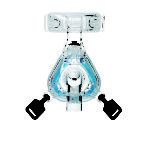
Your CPAP Machine — It only helps if you use it!
If you have OSA – Obstructive Sleep Apnea – a CPAP machine can change the way you sleep… and live. People with OSA should never forget that they actually stop breathing at least once during the night. They sleep poorly and their blood oxygen levels are lower. OSA has been associated with an increased risk for many health problems, including hypertension, heart disease, mood and memory problems — even problems driving.
What Can CPAP Therapy Do for Me?
A study in the journal SLEEP suggests that CPAP therapy can do more that improve sleep. Patients who regularly use a CPAP machine:
- felt significantly less fatigue throughout the day
- had much more energy
- felt considerably less daytime sleepiness — especially those who were previously over fatigued.
Scientists aren’t certain how and why CPAP therapy can have these additional positive effects, but they think that CPAP may reduce inflammation, which in turn reduces fatigue. This is encouraging news for people who have OSA — and even better news for people who are already using CPAP machines to improve the quality of their sleep.
A CPAP machine is not as attractive as a new lamp or stylish art in the bedroom. But in addition to changing the way a person with OSA sleeps, it can also help people feel less fatigued and have more energy throughout the day.
We already knew that CPAP improves the quality of sleep of many people — and saves their partners from listening to hours of snoring and other loud breathing noises. Just a few more reasons for people with OSA use their machines every night.
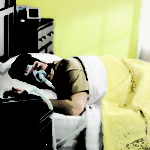
Sleep Study – Home Test or at the Doctor?
An overnight sleep study at a sleep disorders center has always been the standard diagnostic test for detecting obstructive sleep apnea (OSA) in children and adults. But recent advances have made home sleep testing another option for people who are at risk for OSA.
To help you make the best decision for you, here are the differences between an overnight sleep study and a home sleep test: Setting an overnight sleep study requires you to spend the night at a sleep disorders center. You stay in a comfortable, private room. But you might have a hard time sleeping in a strange environment. A home sleep test uses a portable-monitoring system that is small enough for you to use at home. The system consists of a small recording device, sensors, belts and related cables and accessories. You apply the sensors to your body and turn on the recording device before going to sleep. The sleep recorder gathers important data as you sleep in your own bed.
What Will An Overnight Sleep Test Tell Me?
An overnight sleep study detects many other sleep disorders in addition to OSA. These include entral sleep apnea, restless leg syndrome and other disorders. Overnight sleep studies are effective even if you have multiple medical problems or sleep disorders.
A standard home sleep test only detects OSA. It does not detect other sleep disorders. Having another medical problem or sleep disorder may affect the results of a home sleep test.
Can Children or the Elderly Take a Home Sleep Apnea Test?
Overnight sleep studies can be performed at any age. This includes infants, children, teens and older adults. Home sleep tests may be inadequate for older adults who are likely to have other medical problems or sleep disorders that affect sleep. Standard home sleep tests do not record the additional signals that are needed to isolate these other problems. Home sleep tests are not recommended for children.
What Information is Recorded During a Home Sleep Test?
An overnight sleep study gathers signals of all the vital signs that are related to your sleep. Each of these signals is recorded on its own “channel.” For example, electrodes are placed in three positions on your head. They record the activity of three different regions of your brain. The signals from these three electrodes are recorded on three separate channels. Sleep disorders centers that are accredited by the American Academy of Sleep Medicine must record at least 12 channels of information. An overnight sleep study also measures all aspects of your sleep. This is known as your “sleep architecture.” Included is you total sleep time, sleep efficiency, sleep stages and how long it takes you to fall asleep.
A typical home sleep test records only those signals that are needed to detect OSA. Examples include airflow and breathing effort. Each of these signals also is recorded on a separate channel. Most home sleep tests record four to seven channels of information. A standard home sleep test does not measure total sleep time or other aspects of your sleep architecture. Instead it notes the total recording time of your sleep test.
These lists show the information recorded by a standard overnight sleep study and a typical home sleep test:
- Overnight Sleep Study
- Airflow
- Breathing effort
- Blood oxygen
- Heart activity (EKG)
- Brain waves (EEG)
- Eye movements (EOG)
- Chin movements (EMG)
- Leg movements (EMG)
- Snoring (Microphone)
- Unusual behavior (video)
- Body position
- Sleep architecture
Overnight Sleep Study Supervision
An overnight sleep study is “attended” by a trained sleep technologist. He or she monitors your equipment during the night. A home sleep test is “unattended.” It is performed at home without the supervision of a health-care professional.
How Accurate is an Overnight Sleep Test
Overnight sleep studies have been proven to be accurate with a low failure rate. A sleep technologist ensures that the equipment functions properly and records quality signals. He or she is able to correct any problems that may arise during the study.
A home sleep test can be as accurate as an overnight sleep study at detecting OSA. It is most effective for adults who have a high risk of OSA. Results are less accurate for people who have other medical problems or sleep disorders that affect sleep. Data loss also is a risk with home sleep tests. This can occur if the equipment malfunctions or is set up improperly. In both cases you may be unaware of the problem or unable to correct it. This can cause the results of the home sleep test to be inaccurate.
Where Can I Get a Home Sleep Apnea Test?
Go to CPAPAmerica.com to order your testing supplies. Whether you choose to test at home or away, the most important thing is to get tested and start treatment sooner rather than later. That way, you will start enjoying the benefits of a good night’s sleep.
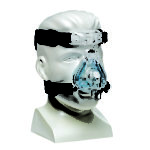
Truck Driver Safety and Sleep Apnea
Some commercial driver’s license (CDL) holders are required to undergo testing for sleep apnea.
How does sleep apnea impact commercial drivers?
The Federal Motor Carrier Safety Administration’s (FMCSA) goal is to reduce commercial vehicle related fatalities and injuries. A FMCSA study found is that an estimated 28% of Commercial driver’s license (CDL) holders suffered from some form of sleep apnea ranging from mild (17.6%), to moderate (5.8%) to severe (4.7%). While sleep apnea can contribute to CDL drowsiness while on the road in addition to impacting driver general health and well-being, it is a treatable and preventable condition. Sleep apnea has been linked to a variety of other chronic diseases such as diabetes, hypertension, and most notably obesity. Getting tested and treated is important to both driver safety and driver health.
Who needs to be tested?
The current DOT regulations include BMI and neck size as key indicators for sleep apnea that medical examiners will be looking for during physical exams.
- Anyone with a BMI of 35 or greater
- Males with a neck size of 17 inches or greater
- Females with a neck size of 16 inches or greater
What if I already Use a CPAP Machine?
Drivers whose sleep study results are positive for sleep apnea and who have been set up on CPAP treatment, will have to meet certain compliance requirements when using their CPAP machines. To meet current DOT regulations, CDL holders must use their machines for 70% of the week – basically 4 hours a night for 5 nights a week.

